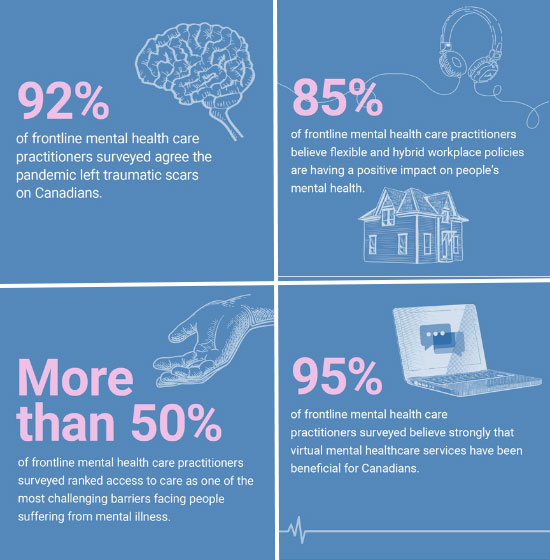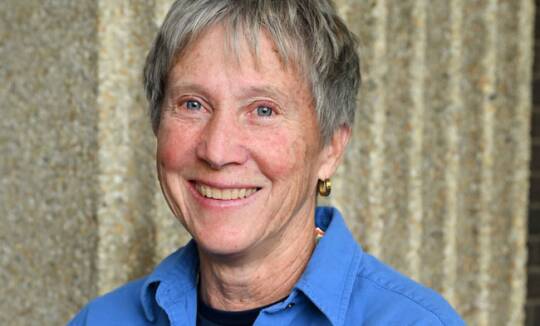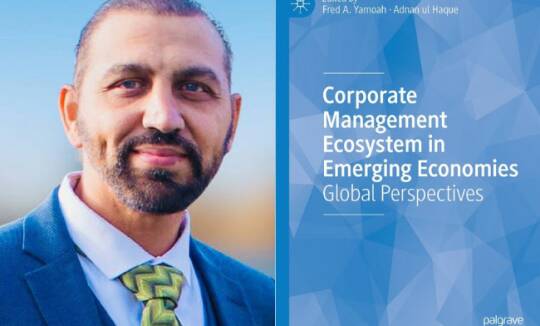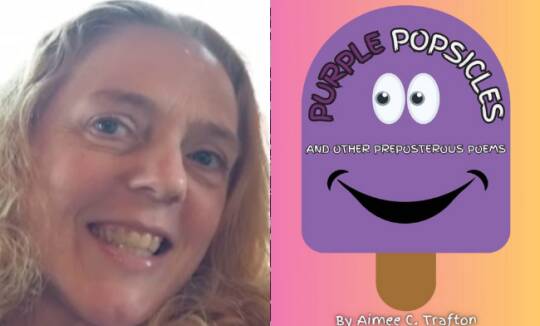“The time is right for positive change.”
That’s the key takeaway from a mid-January survey conducted by faculty in Yorkville University’s Master of Arts in Counselling Psychology (MACP) program, which polled 2,200 frontline mental health workers in Canada about the stresses, scars and opportunities emerging from the pandemic.
“The last few years illuminated the importance of mental health, as well as the fact that we are all connected, and all affected,” said Dr. Sarah Stewart-Spencer, Dean of Behavioral Sciences at Yorkville University, Canada’s leading online counsellor education graduate program.
“There is no debating from this survey that Canadians are exhausted and struggling with the scars of the pandemic, coupled with the economic realities they are now facing. However, with the stigma of mental health reducing, and the empathy and understanding of Canadians increasing, the time is right for the frontline to be heard and have access to the tools they need.”
What the results of the survey revealed, Stewart-Spencer said, is that economic hardships and access to care are the most pressing issues, but that hope exists for accelerated virtual healthcare and hybrid workplace policies.
You can watch Stewart-Spencer’s interview on CTV News HERE and her appearance on the CP24 Breakfast show HERE.
7 Key Findings
The following 7 Key Findings highlight both the mental health challenges and care opportunities emerging from the pandemic:

- 92% of the respondents agree that the pandemic left traumatic scars for individuals across Canada, with over half saying the state of parents’ and caregivers’ mental health post-pandemic is somewhat or significantly deteriorating, citing economic stresses, eroding resiliency, and fatigue as contributing factors.
- 78% say economic and financial hardships are the most pressing issues facing individuals suffering from mental illness. In addition, more than half of respondents ranked financial stress as a contributing factor impacting mental health in post-pandemic hybrid workplaces.
- More than half of respondents ranked access to care as one of the most challenging barriers facing people suffering from mental illness.
- 95% believe strongly that the virtual mental healthcare services that accelerated expansion during the pandemic have been beneficial for Canadians.
- 85% believe that flexible and hybrid workplace policies are having a positive impact on people’s mental health.
- 61% of respondents also revealed trauma-informed practice as the top area of importance where more attention, training, and resources are required for psychotherapists dedicated to improving the mental health of Canadians.
- 75% believe trauma-informed and neuroscience and brain-based practices are the most important areas for mental health research, with the greatest potential to improve the lives of Canadians.
Conducted over a week, from Jan. 11 – 18, 2023, Yorkville University’s survey polled 2,200 members of its community of frontline psychotherapists, graduate students, and practicum partner sites on their insights into the current state of mental health care in Canada.

Eleven questions were asked of survey participants from all across the country – 58% of whom were current students in Yorkville University’s Master of Arts in Counselling Psychology (MACP) and Doctor of Counselling and Psychotherapy (DCP) programs; 21% were MACP/DCP alumni (practicing/post-graduate psychotherapists/counsellors); and 17% of whom were practicum site supervisors (community-based organizations/partners).
“As leaders in the development of the next generation of mental health practitioners across Canada, we believe positive change can come from listening to those on the front line of care,” said, Julia Christensen Hughes, President of Yorkville University.
“The response to this timely survey reaffirms that this is a community of empathetic change-makers who care deeply about having their voices heard as we all work together to support those suffering from mental illness.”






